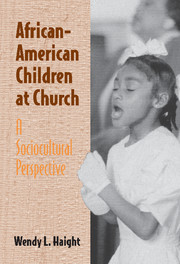Book contents
- Frontmatter
- Contents
- List of Tables
- Acknowledgments
- PART ONE OVERVIEW
- PART TWO PATTERNS OF SOCIALIZATION AND PARTICIPATION
- PART THREE RELATIONSHIPS OF RESEARCH AND PRACTICE
- 11 The Computer Club: Implications of Research for Practice
- 12 Enhancing University Students' Understanding and Appreciation of Cultural Diversity: Implications of Practice for Research
- PART FOUR CONCLUSION
- References
- Index
11 - The Computer Club: Implications of Research for Practice
Published online by Cambridge University Press: 10 August 2009
- Frontmatter
- Contents
- List of Tables
- Acknowledgments
- PART ONE OVERVIEW
- PART TWO PATTERNS OF SOCIALIZATION AND PARTICIPATION
- PART THREE RELATIONSHIPS OF RESEARCH AND PRACTICE
- 11 The Computer Club: Implications of Research for Practice
- 12 Enhancing University Students' Understanding and Appreciation of Cultural Diversity: Implications of Practice for Research
- PART FOUR CONCLUSION
- References
- Index
Summary
Collaborations between researchers and practitioners promise significant mutual gains. First, social service practice and education provide a perspective to stimulate critical thinking about human development research and theory. As researchers strive to articulate the complex interplay between human development and context, practice provides critical exemplars of the ways in which individuals, families, and communities function within diverse contexts. In foregrounding the daily struggles of real families dealing with issues such as unmet educational or mental health needs, substance abuse, poverty, child abuse and neglect, and the culture of social service agencies, practice pushes for more complex, inclusive, and adequate theoretical models of human development.
On the other hand, research also has the potential to support more effective practice. First, research can expand the knowledge base from which practitioners draw in addressing issues encountered by children and families (e.g., Reid, 1995; Sigel, 1998; Thornton & Garrett, 1995). Research also provides a perspective and method that can stimulate critical thinking about everyday problems. For example, the scientific method can provide a means to assess interventions and to consider systematically alternative explanations for particular patterns of outcomes (e.g., Reid, 1995). The ethnographic method can provide a set of tools for developing knowledge about a specific community, thus providing a bridge to multicultural practice (Thornton & Garrett, 1995).
Despite the potential for significant mutual gains, collaborations between researchers and practitioners can be problematic. Tensions can result from individuals' differences in experience and communication styles.
- Type
- Chapter
- Information
- African-American Children at ChurchA Sociocultural Perspective, pp. 165 - 171Publisher: Cambridge University PressPrint publication year: 2001



